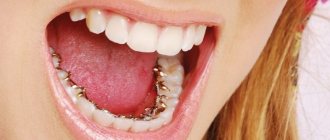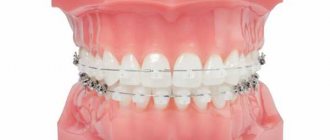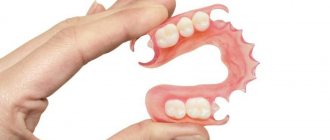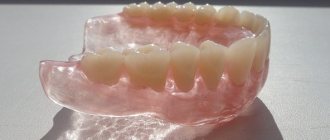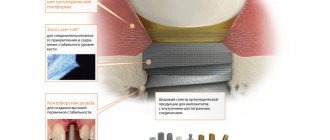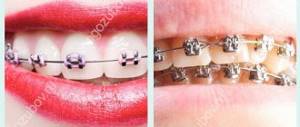Situations often arise when a regular toothbrush does not fully cope with cleaning the oral cavity. Foreign particles that remain gradually lead to serious problems with teeth and gums. In such cases, additional cleaning is required, and here an irrigator becomes an indispensable assistant. These devices create a powerful stream of water that penetrates into the most inconvenient and hard-to-reach places. Irrigators not only clean, but also massage the gums. Next, we will consider the rating of the best oral irrigators, as well as reviews and comments from real users.
Irrigator - a device for cleaning teeth and gums
First, let's figure out what this personal hygiene item is. The irrigator resembles an electric toothbrush with a thin tip instead of bristles. This device operates on the principle of a hydraulic compressor. Pressure is created inside the device, pushing water through the tip under high pressure. The flow of liquid washes away plaque and food particles from the teeth, cheeks, gums and tongue, thereby preventing the development of numerous dental diseases. Some experts do not recommend using the device for patients with problem gums, fearing that it may worsen the situation. However, modern devices, as a rule, have a built-in massage mode that strengthens soft tissues and improves their condition. However, people with acute inflammation should not use the device for some time.
The unique, multifunctional device JETPIK JP200 Elite combines an electric sonic toothbrush, irrigator and dental floss. The components and the device itself are stored in a convenient plastic container, which is ideal for traveling or storing in a small bathroom.
Types of solutions
Conventionally, special solutions for the oral cavity are divided into three groups:
- Professional – liquids with a therapeutic effect for inpatient treatment (often high concentration). The drug is prescribed by a doctor for therapy or in the postoperative period.
- Household – for the treatment and prevention of dental diseases at home. The concentration of active components here is lower than that of professional ones; they are used for daily care.
- Homemade - herbal preparations of medicinal plants for the complex treatment of diseases of the oral cavity.
Based on the principle of action, solutions for irrigators are:
- Therapeutic - with fluoride and calcium to strengthen enamel and treat caries.
- Preventive – with beneficial elements for gums and teeth, they prevent possible pathologies, saturate the enamel with minerals, and destroy pathogenic microflora.
- Deodorants - with mint or menthol for everyday care, provide long-lasting fresh breath.
- Disinfectants – with antiseptics that destroy dangerous bacteria and are used to prevent dental diseases.
Why do you need an irrigator?
Why do you need an oral irrigator? Firstly, it copes with tasks that many toothbrushes cannot do: it removes plaque not only from the surface of the teeth, but also from hard-to-reach places: interdental spaces, as well as areas between the tooth and the gum. The accumulation of deposits in these areas that are impenetrable to brushing leads to such common diseases as cervical caries, diseases of the periodontal tissues - gingivitis and periodontitis, as well as caries of contact surfaces. Secondly, an irrigator is necessary for owners of braces, dentures, crowns, veneers, lumineers and implants. Such orthopedic or orthodontic structures make oral hygiene difficult and require special care. And finally, thirdly, the stream of water coming out of the irrigator cleans out periodontal pockets and also massages the gums, which helps strengthen them and, as a result, reduce bleeding.
Operating principle of irrigators
The action of the irrigator is based on the supply of water or a special solution from the reservoir through the working head into the oral cavity. The jet pressure can be selected depending on the sensitivity level of the gums. Obviously, it is necessary to pour liquid into this device, since without it the device simply will not work.
To significantly increase the effectiveness of the oral care procedure, it is worth pouring special solutions recommended by the equipment manufacturer.
The convenience of using ready-made solutions for irrigators is determined by the cost-effectiveness of product consumption. Even a small bottle lasts a long time, since for one treatment of the oral cavity a working solution is prepared in a ratio of 1:10, most of which is plain water. However, the proportion may be different. The dosage and procedure for using the liquid is indicated on the packaging of the product itself.
Varieties
Today there are a large number of irrigators, differing from each other in various parameters. Devices are divided into portable and stationary, powerful and not very powerful, with one or more nozzles and modes, with and without microbubble technology, with a water tank and with a connection to a tap, as well as with built-in dental floss, like JETPIK irrigators, in several times increasing the effectiveness of teeth cleaning. Do not also forget that each device has a certain warranty period, depending on the policy of the manufacturer. Read about how to choose the best irrigator in our other articles.
Reliable and convenient irrigator for the whole family Hydro Floss Kitty Waterjet
The benefits and harms of an irrigator
The spread of harmful microflora is especially harmful to the oral cavity. A toothbrush and preventive or therapeutic paste allow you to care only for accessible surfaces in the mouth. A thin but powerful stream of water easily penetrates between the teeth, into periodontal pockets, and into the spaces of dental structures, freeing the mouth from dangerous bacteria, plaque and food debris.
An irrigator, which cleanses the oral cavity using liquid irrigation, is used as a preventive measure for various diseases and for treatment, and water or special solutions can be poured into the device’s reservoir, the therapeutic effect of which on the mouth is determined by their composition.
The design features of the device ensure complete safety, and the range of modes and attachments included in the kit make it possible for all family members to use it with maximum benefit for the oral cavity.
You can evaluate the benefits of using the irrigator immediately after the first use. Significant changes are noticeable within two weeks after starting to use the irrigator: you will easily notice the effect of improving the health of the oral cavity.
According to reviews from dentists and research data, there is no harm from irrigators, but this does not mean that the device is suitable for everyone. Despite all its usefulness and dozens of advantages, the irrigator may not be allowed to be used for health reasons. For example, it is not recommended to use the device if you have vascular rosacea or have recently had gum surgery. In such situations, even the weakest jet pressure can cause damage.
How to use an irrigator correctly
At first, it is recommended to set the device to the weakest setting so as not to damage soft tissues and cause pain. During cleaning, the handle of the device should be held at an angle of 90° to the surface of the teeth. You should tilt your head so that the liquid will immediately flow into the sink. How often you need to use an oral irrigator, the number of daily procedures and their duration depend on the individual characteristics of the owner of the device. For some, it will be enough to use the irrigator no more than 3 - 4 times a week for 5 minutes daily, while for others, for example, those who wear braces, crowns, implants or other structures or suffer from crowded teeth, to achieve the desired result, you should wash your teeth at least twice a day for 10-15 minutes. In any case, the plan for using the irrigator must be approved by a specialist.
By the way, some devices have a sensor installed that helps to organize the cleaning process correctly. Based on the time given to him, he independently plans the course of the procedure and “informs” his owner when he needs to move from the treated area of the oral cavity to the untouched one.
The Panasonic Dentacare Handy EW 1211 portable irrigator is one of the best devices in terms of reliability.
Which dental irrigator should you choose?
Irrigators are either stationary or portable. The first ones have a large (up to a liter) reservoir for liquid, operate from an electrical network, and are distinguished by high power. Portable ones are light in weight, have a tank capacity of around 400 ml and run on batteries.
If you plan to frequently use a water flosser at home, it is better to choose a stationary model that does not need to be recharged, and one tank is enough for use by several family members. If you need a dental irrigator on trips or business trips, a portable model is better suited for these purposes. This device easily fits into a travel bag and can be used if there is no power outlet nearby.
How often should you use a waterpik?
Experts differ in answer to this simple question. The only thing that dentists are unanimous about is that it all depends on the condition of the oral cavity and for what purpose you are going to use the irrigator - preventatively or as part of complex therapy.
For healthy teeth
If you take care of your teeth and do not neglect daily personal hygiene, then it is enough to use the irrigator once a day for 4 days a week - solely for the purpose of preventing the formation of tartar in hard-to-reach places.
For people with bad habits
For heavy smokers, as well as those who like to abuse black coffee, tea or red wine, who are prone to the formation of dense plaque, dentists recommend using an irrigator 2 times a day every day as the final stage of oral hygiene.
During pregnancy
Women expecting a baby are extremely susceptible to any infection. Therefore, to prevent the activation of bacteria that cause caries, an irrigator is indispensable at least once a day.
For gum diseases
If you have chronic inflammatory gum diseases, such as periodontitis or gingivitis, the frequency of use of the irrigator, especially a special periodontal attachment, should be regulated by the periodontist who is observing you.
When wearing braces
Modern brace systems, despite their dramatic progress compared to the designs of 20 years ago, require increased hygiene. In this situation, it is advisable to use an irrigator after each meal during the day.
If you have dentures
The situation is similar with any removable dental prostheses: the more often and thoroughly their hygiene is carried out using an irrigator, the better and longer they will last.
Attention!
After undergoing surgical interventions in the oral cavity, the use of an irrigator should be abandoned until the time when the attending physician allows it.
Is it possible to make water irrigator products yourself?
At home, if there are no pharmaceutical liquids for the irrigator, you can apply the solution yourself:
- Antimicrobial soda solution. Dissolve 2 teaspoons of baking soda in 300 ml of boiled water. Mix thoroughly and pour into a container.
- Antimicrobial saline solution. 1 teaspoon per glass of water.
- Antibacterial solution. Dissolve 3 caps of hydrogen peroxide (3%) in a glass of water.
Homemade recipes can one-time replace special ones, but they must be used carefully. Soda can damage the irrigator, salt dehydrates and increases sensitivity; Hydrogen peroxide has a destructive effect on dental tissue and also irritates the digestive organs. There are also recipes using vinegar and lime, but they do more harm than good. Therefore, their use is strictly prohibited.
Rules for caring for the device
The irrigator, like all electrical appliances, requires special care. The device should be washed as follows: firstly, do not under any circumstances immerse the entire irrigator in water, especially when it is turned on - it may short out (which is deadly!), and its parts may rust. Secondly, do not use unboiled water to clean the device, only filtered and, preferably, warm water. Otherwise, scale will form inside the mechanism, which will lead to its breakdown. In order to thoroughly clean the irrigator, you need to fill it exactly halfway with warm water, empty the reservoir after a couple of minutes, rinse the device and nozzles for the irrigator, and then wipe all components dry. Particularly advanced manufacturers produce devices together with a UV sanitizer designed to disinfect replaceable attachments. The ultraviolet radiation on which it works destroys microbes accumulated on the tips and thus prevents the development of dental diseases. As for the storage conditions of the irrigator, it should be kept in a dry place. Touching the appliance plug with wet hands is strictly prohibited.
In principle, the irrigator should not be cleaned too often, except for those cases when you pour special decoctions into its tank. Particles of herbs from the infusion remain inside the device and may damage its operation.
Multifunctional irrigator OR 820M Donfeel with nasal attachment
How to use it correctly
Regardless of the type of liquid, the rules for its use should be strictly followed:
- If you use household products, you should carefully study their operating instructions.
- Do not use the liquid if there are contraindications and there are no indications for use.
- The use of homemade solutions is permissible after complete dissolution of all components in them and filtration of herbal decoctions.
- Most of these liquids are presented in the form of concentrates, requiring their preliminary dilution in a ratio of 1:10.
- To prepare liquids, you must use only purified, distilled or boiled water.
- The water temperature should not be more than 38 degrees.
- The most appropriate time for irrigation is the evening after brushing your teeth.
- The liquid is directed to the gums at an angle of 80 degrees, and the duration of the procedure should not exceed 15 minutes.
- The frequency of use of a particular liquid is determined taking into account its type and purpose.
How to choose a liquid for an irrigator?
When using the irrigator, special attention should be paid to the cleaning agent. Usually, irrigators come with a special balm that should be added to the water in the tank. The type of balm and the level of its concentration in water will depend on the condition of the oral cavity and the presence of certain dental problems. Some people pour regular rinse aids into the tank, but they foam quite a lot and make the cleaning process difficult. You can also use ordinary water as a cleaning agent, but only filtered water - it is safer and does not contain impurities that settle inside the device and interfere with its operation. Remember: if there is no water in the container, the irrigator cannot be turned on.
It is important to remember that it is not enough to buy an irrigator and think that it will save you from using conventional hygiene products! The device will provide a final cleaning of your teeth, removing what the toothbrush couldn’t handle. And the supplement will improve blood circulation, stimulate the renewal of soft tissues, prevent the formation of tartar and eliminate bad breath. Our Irrigator Rating 2021 will help you choose the right model.
Why do you need to pour a solution into the irrigator rather than water?
It is permissible to clean the oral cavity with ordinary water: rinse your mouth after eating or irrigate with a hygiene device. But special solutions, in addition to cleansing, have a therapeutic and prophylactic effect.
Liquids are distinguished according to the type of impact. Depending on the effect, a solution is selected for:
- performing oral sanitation;
- accelerating the process of regeneration of damaged tissues;
- strengthening gums;
- reducing bleeding;
- stimulating the protective immune functions of the body;
- restoration and strengthening of tooth enamel;
- prevention of stones;
- reducing or eliminating inflammation;
- eliminating unpleasant odors.
Liquids for irrigators are divided into:
- Professional ones that are used after surgery, for therapy or physiotherapy.
- Household products that are used at home for cleansing and prevention.
Regular rinse aid or homemade rinse aid can damage the appliance or even harm your health.
The following requirements apply to the irrigator fluid:
- It must be cleaned and filtered.
- Do not form sediment.
- Be sterile clean.
- Do not cause a chemical reaction upon contact with the device.
- Create a minimum amount of foam.
It is permissible to fill the tank with clean bottled water.
Oral irrigator Little Doctor Aquajet d-a7
Budget, but at the same time reliable model with excellent performance characteristics. The water pressure can be set in the range from 290 to 609 kPa. In addition, like the previous model, Little Doctor Aquajet d-a7 is equipped with a 500 ml tank. and has a special dust-proof compartment for attachments.
Features of Little Doctor Aquajet d-a7:
- 4 nozzles for each family member;
- Screws for mounting to the wall are supplied;
- attractive price;
- small dimensions and stylish modern appearance.


